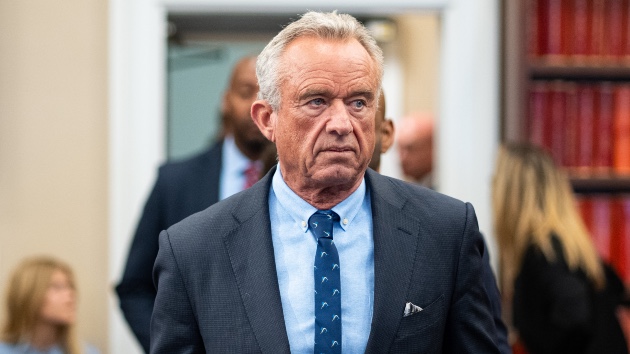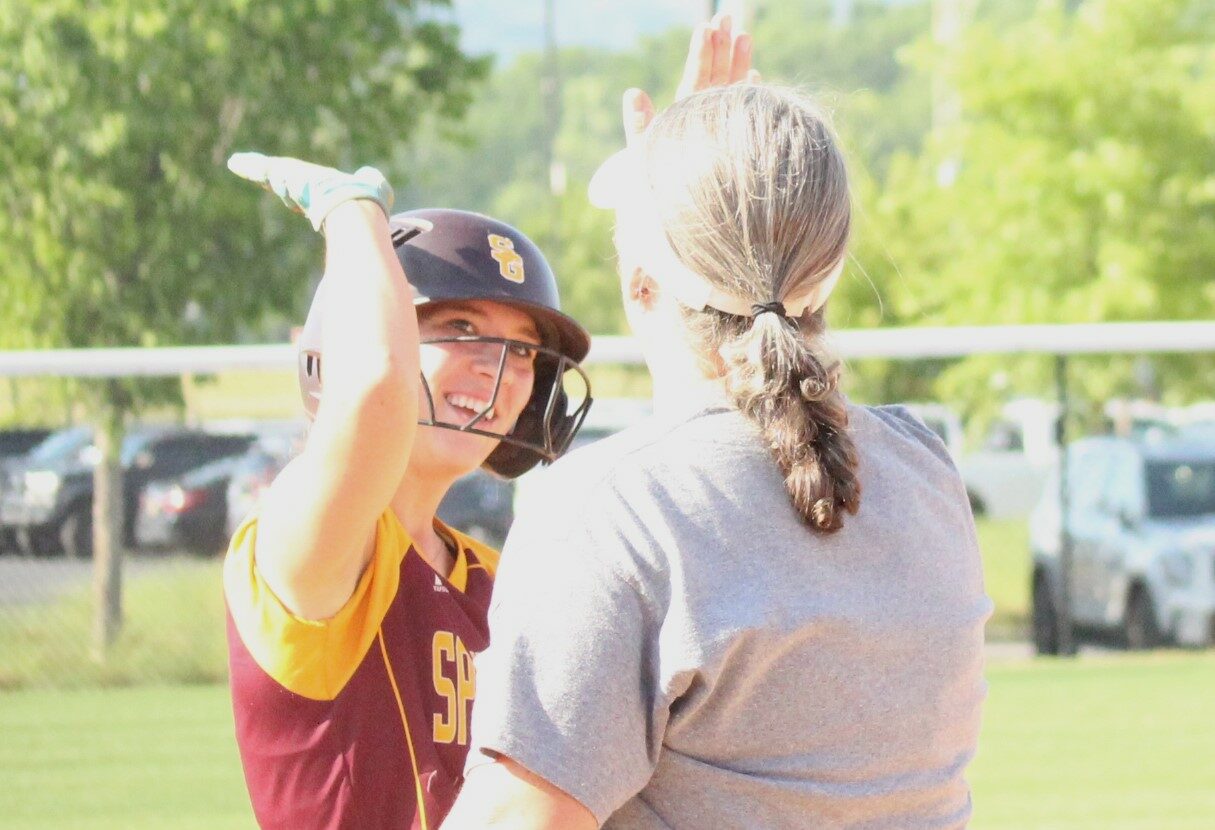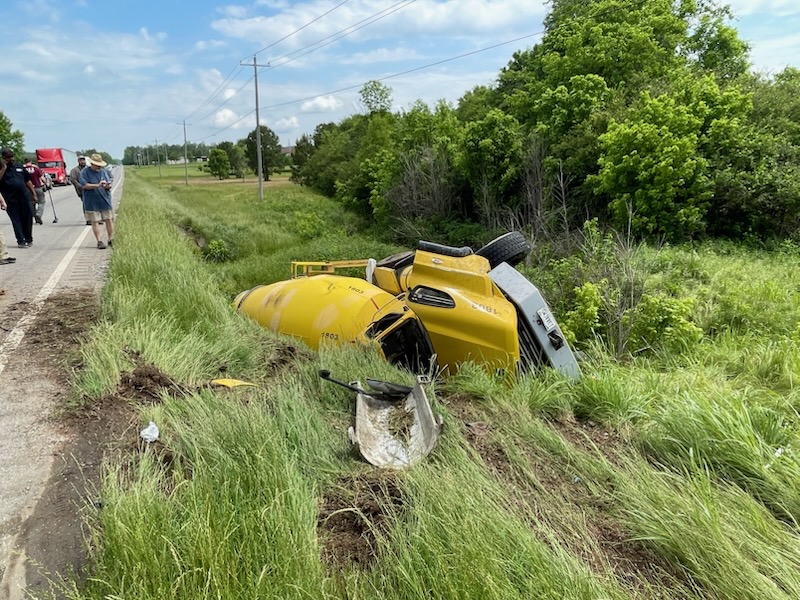
(WASHINGTON) — Health and Human Services Secretary Robert F. Kennedy Jr., one of the nation’s most publicly recognized vaccine skeptics, took a softened approach on vaccines when he answered questions before a House committee Wednesday morning, saying, “I don’t think people should be taking medical advice from me.”
Kennedy, who also testified before a Senate committee the same day, defended the massive cuts to the department’s workforce and laid out his priorities for the Trump administration’s proposed budget.
Kennedy’s congressional committee appearances marked the first time he testified before Congress since his confirmation hearings in late January, and forced Kennedy to confront statements he made that critics said were evidence of promises broken.
Kennedy says his ‘opinions about vaccines are irrelevant’
During the House hearing, Kennedy avoided sharing his own thoughts about vaccines — which have previously invited skepticism — instead deferring to the doctors running the National Institutes of Health and Centers for Disease Control and Prevention.
Asked by Democratic Rep. Mark Pocan if he would today vaccinate his own children for measles and chickenpox, Kennedy said “probably” for measles, but that “what I would say is my opinions about vaccines are irrelevant.”
“I don’t want to seem like I’m being evasive, but I don’t think people should be taking advice, medical advice from me,” Kennedy said.
He said he has directed NIH Director Jay Bhattacharya to try to “lay out the pros and cons, the risks and benefits, accurately as we understand them, with replicable studies,” for people to “make that decision.”
His comments mark a departure from his strong opinions about vaccines before taking office as HHS secretary.
During his confirmation hearing in January, Kennedy said that he supports vaccines, although he refused to unequivocally say that vaccines don’t cause autism, despite numerous existing studies already showing there is no link. However, in March, the HHS confirmed that the CDC will study whether vaccines cause autism.
Shortly after Kennedy said people should not take his medical advice, some public health experts criticized the comments — with one saying that giving people guidance “is [Kennedy’s] job.”
“The problem is that is his job — the top line of his job description — is the nation’s chief health strategist. That is the top line of every health official, federal, state, local leader. That is his job, is to give people the best advice that he can. I believe that he’s giving up on, in my view, his chief responsibility,” Georges Benjamin, executive director of the American Public Health Association, told reporters on a call in which he and other health leaders responded to Kennedy’s testimony in front of the House Appropriations Committee.
Benjamin pointed out that Kennedy has, in fact, seemed to advise people on how to treat measles, leading them toward unproven remedies.
Democrats push Kennedy on cuts: ‘You can’t fire 90% of the people and assume the work gets done’
Democrats on both the House and Senate committees questioned Kennedy about cuts to HHS — with several testy exchanges.
In April, HHS began laying off about 10,000 workers and consolidating 28 institutes and centers into 15 new divisions.
Including the roughly 10,000 people who have left over the last few months through early retirement or deferred resignation programs, the overall staff at HHS is expected to fall from 82,000 to around 62,000 — or about a quarter of its workforce.
Democratic Sen. Tammy Baldwin, quoting ABC News’ reporting last week, asked Kennedy about cuts to the CDC’s lead poisoning prevention program.
Though the program has been completely gutted and the expert staff has been laid off, Kennedy said he believes lead poisoning to be an “extremely significant concern” and said he does not intend to eliminate the program.
Kennedy suggested that HHS would still spend the money appropriated to the program — but didn’t offer any details on how the work would continue without any expert staff.
In another heated exchange, Democratic Sen. Patty Murray asked Kennedy about cuts to National Institute for Occupational Safety and Health, including the reinstatements that are mostly in Ohio and West Virginia. She said no one has been reinstated in the Western states, including at the Spokane, Washington, office that does research into miner safety.
“The work in NIOSH will not be interrupted,” Kennedy said. “We understand it’s critically important function, and I did not want to see it end.”
Murray quipped back, “I would just say you can’t fire 90% of the people and assume the work gets done.”
During the earlier House hearing, Kennedy continued to maintain that widespread cuts at HHS have not impacted key health programs, saying he has not withheld any funding for lifesaving research at NIH and continues to prioritize pillars such as Head Start, Medicare and Medicaid.
But in a tense back-and-forth with Democratic Rep. Rosa DeLauro, ranking Member of the House Appropriations Committee, she demanded Kennedy’s assurance that he would not cut programs that have been approved and funded by Congress, which has “the power of the purse” ascribed to it in the Constitution.
Kennedy said he would spend appropriated money — which drew repeated exasperation from DeLauro, who pointed to $20 billion in cuts to NIH.
Kennedy asserted that his goal at HHS is to focus on the chronic disease epidemic and deliver effective services for those who rely on Medicare, Medicaid and other services by cutting costs to taxpayers.
“We intend to do more, a lot more with less. The budget I’m presenting today supports these goals and reflects two enduring American values, compassion and responsibility,” Kennedy said.
DeLauro slammed Kennedy and the Trump’s administration for the cuts to HHS, including the elimination of entire divisions.
“Mr. Secretary, you are gutting the life-saving work of the Department of Health and Human Services and its key agencies while the Republicans in this Congress say and do nothing,” DeLauro said. “Because of these cuts, people will die.”
DeLauro also finished the hearing with an impassioned plea for Kennedy to stop cutting programs, telling him he does not have the authority to go against what Congress allocated in the budget.
“You do not have the authority to do what you are doing,” she said.
Kennedy defends measles outbreak response, measles vaccine stance
Kennedy rebuked criticism of his agency’s response to the measles outbreak, which has surpassed 1,000 cases for the first time in five years, according to the CDC.
A total of 92 patients have been hospitalized over the course of the outbreak and two school-aged children died in Texas. Both were unvaccinated and had no known underlying conditions, according to the Texas Department of State Health Services.
“We are doing a better job at CDC today than any nation in the world controlling this measles outbreak,” Kennedy said.
DeLauro hit back, saying that Kennedy’s comparison of the U.S. response to measles to the response of other countries was unfair.
“Mr. Secretary, you keep comparing the U.S. to other countries, compare us to Europe, but the Europe you are referring to is the WHO European region, [which] has 53 countries in Europe and in Asia, including those with low … vaccination rates like Romania and that has never eliminated measles,” she said. “If you compare us to western Europe countries that we often compare ourselves to, like Great Britain, they have seen no measles death.”
Kennedy argued that the U.S. is doing better than other countries in the Americas with smaller populations, including Canada and Mexico.
DeLauro scolded Kennedy for promoting vaccine skepticism in the wake of a measles outbreak spreading across the U.S.
Kennedy has shared contradicting views about vaccines. In a post on X on April 6, Kennedy said that the “most effective way to prevent the spread of measles” is to receive the measles, mumps, rubella (MMR) vaccine. However, in a post later that evening, he said more than 300 children have been treated with an antibiotic and a steroid, neither of which are recognized treatments or cures for measles.
A particularly heated moment occurred when Democratic Sen. Chris Murphy told Kennedy that the secretary has equivocated when discussing the measles vaccine. Murphy noted instances in which Kennedy has touted the effectiveness of the vaccine before listing its potential harms.
Kennedy, angry at the line of questioning, interrupted Murphy, claiming his prior comments were true.
When Murphy pressed for Kennedy to say directly whether he recommended the measles vaccine for people, Kennedy, who told CBS News in an April interview that he did recommend the shot, said, “I am not going to just tell people everything is safe and effective if I know that there’s issues. I need to respect people’s intelligence.”
Vaccine specialists say the measles vaccine is durable and two doses in your youth is sufficient for lifelong protection without the need for a booster. The CDC notes on its website that the agency “considers people who received two doses of measles vaccine as children according to the U.S. vaccination schedule protected for life, and they do not ever need a booster dose.”
Numerous studies over decades across multiple countries have confirmed the safety and efficacy of the MMR vaccine, the American Academy of Pediatrics notes. Additionally, monitoring for the safety of a vaccine does not end after the shot has been licensed for use. There are federal health databases in which anyone can report side effects or reactions following a vaccine — officials are then able to review these reports and identify any potential safety issues.
Copyright © 2025, ABC Audio. All rights reserved.




